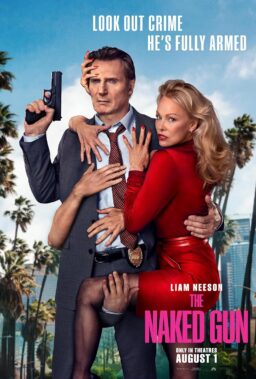Maybe a young director shouldn’t expect too much. Peter Watkins made “The War Game,” a documentary about nuclear war, and it was banned on British television and described by Kenneth Tynan as the most important film ever made. Then Watkins made his first full-length feature, “Privilege,” in which he was just as bitter, in a different way, about how things were going. But the reviewers didn’t exactly lose their cool.” Watkins said the other day. “You know the kind of review. It’s a good try, they say. Interesting. Original. But it doesn’t quite come off.” Watkins’ “The War Game,” which has been at the World Playhouse for a month, shows what would happen if a small nuclear device were to explode off-target in England.
“Privilege,” which opens Friday at the Playboy, is a more conventional feature film, with a plot and everything. “Still, I shot it in a strange style. Watkins said during a long-distance call from London. “I’m fed up with playing, safe. What I’m reaching for is a way to make the audience believe that it is not looking at a movie, or a ‘story’ but that somehow what it is seeing on the screen is actually happening at that moment.
“Television does this of effortlessly, when you’re watching a sporting match or election night coverage. What you’re watching may be dreadfully boring – but at any moment something incredible could happen. That’s the sense I try to get into my movies.” Watkins said “Privilege” isn’t really about pop singers, but about the “Roman arena” psychology of Britain and America.
“We want to watch all the time, instead of participating,” he said. “When we find someone who will divert and entertain us, we turn him into a fantastic sort of pop hero. But what about the entertainers themselves? They’re monsters created by the mass media. A lot of the pop groups today are their own victims. The public has little to do with it. The public just watches.” Watkins said the pop hero in “Privilege” is meant to be just like the young people who idolize him.
“He doesn’t have a voice,” Watkins said. “Like all young people, he has been sucked dry of the opportunity to speak. He’s a zombie. He keeps making noise, and they keep paying him, but there is no contact. The movie is really about the system that controls him.
“I guess that’s my baste subject: control. In ‘The War Game,’ I was trying to suggest that mankind can set lose something entirely beyond the human ability to control. And now I’m saying the same thing, but I’ve picked another subject to demonstrate it with. People who think ‘Privilege’ is mod, or with-it, or about the turned-on generation, or all of that, are blind and stupid. It’s a revolutionary movie. Maybe it doesn’t succeed, but it’s supposed to inspire criticism and discontent about the way society operates.”











